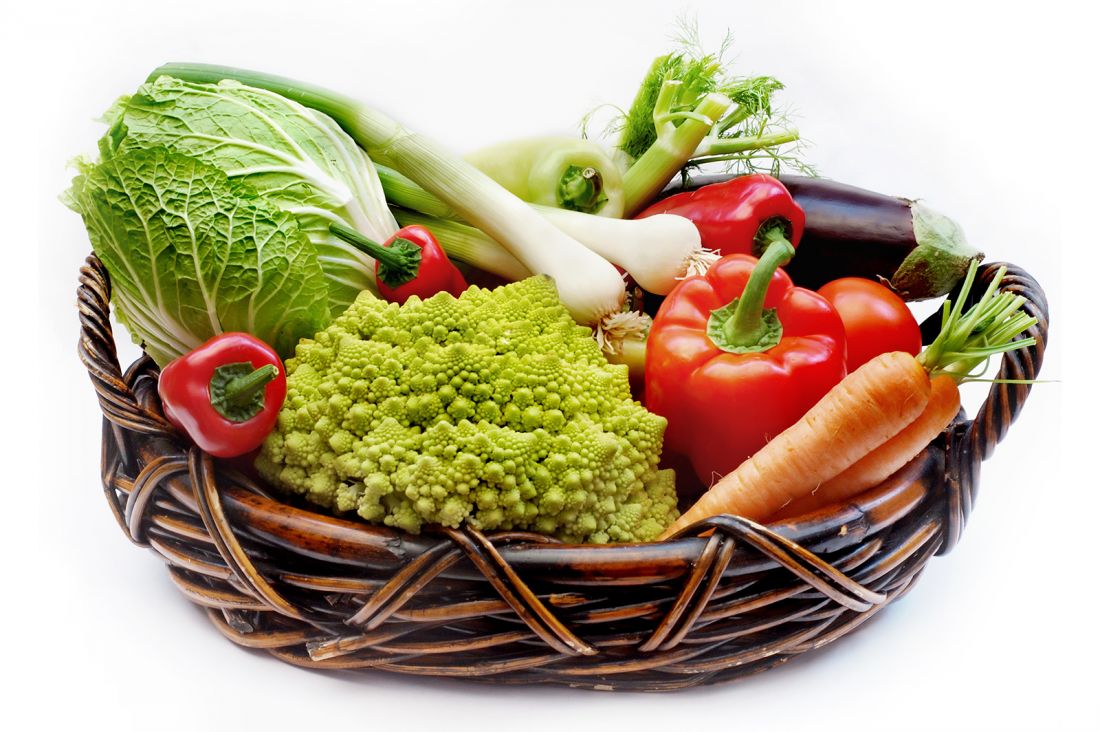by Cynthia Sass
More and more of my clients consider themselves to be “part-time” vegetarians. While they may not want to give up meat altogether, they enjoy plenty of meatless meals or take part in ongoing movements, like Meatless Mondays. Today is another formal campaign focused on leaving meat off your plate: It’s the Great American Meat-Out, and getting on board can be a great opportunity to improve your health.
Even semi-vegetarians weigh less, and have lower risks of high blood pressure and diabetes. Plus, taking the focus off meat can be a simple way to boost your intake of plant-based foods you may not be eating enough of.
Here are five healthy veg-based habits you can adopt, even if you aren’t interested in embracing a total vegetarian lifestyle.
Make veggies the main attraction
When I ask most of my omnivore clients what they had for dinner last night, they typically reply with meat first (e.g. “I had chicken with…”). Veggies are often an afterthought. Obviously my vegetarian and vegan clients don’t eat meat, but I advise everyone—including omnivores—to think about veggies first and build the rest of their meals around them. It’s key, because eating more veggies is one of the most impactful dietary changes you can make, but about 75% of adults fall short of the minimum recommended three daily servings.
Fitting in just one additional portion per day can slash your risk of heart disease by as much as 11%, and making veggies the star of your plate can lead to a myriad of benefits. From today on, when choosing what’s for lunch or dinner, select your veggies to start, then add lean protein, good fat, and healthy starch to round out your meal.
Choose plant-based fats over animal fats
My hubby, who’s from Texas, grew up eating not just plenty of meat, but also meals made with other animal-based fats, like butter, and bacon grease, as well as lots of dairy based sauces. While he still eats these foods once in a while, he now prefers veggies sautéed in olive oil or dressed with EVOO and balsamic vinegar, as well as guacamole instead of sour cream, and sauces made from tahini (sesame seed paste) or nut butter—all staples for many vegetarians.
The switch has helped him lose weight, up his energy, and improve his health, and I see the same with many of my clients. Plant-based fats have been shown to reduce inflammation, a known trigger of premature aging and diseases, including obesity, and even help boost weight control and whittle waistlines—even without cutting calories (check out my previous post 5 Amazing Powers of Avocado). Make the switch more often yourself and monitor how you feel, as well as how your jeans fit.
Make “pulses” your protein
Pulses are my current obsession. Eating at least one serving a day is the cornerstone of my latest book Slim Down Now, and I truly believe that pulses are the most underrated superfoods on the planet. Pulses include beans, peas (e.g. chickpeas, black eyed peas), and lentils, and in numerous studies, eating more of them has been tied to weight loss, less belly fat, appetite suppression, a better overall nutrient intake, and a lowered risk of diabetes and heart disease. Vegetarians often opt for pulses as their protein source and there are plenty of delicious ways to enjoy them, including lentil or split pea soup, black bean tacos, and hummus.
Pea protein powder, also a pulse, is also becoming a hot plant-based protein. I love to whip it into smoothies, and use it as a protein-booster in oatmeal. In addition to providing protein, pulses are rich in filling, blood-sugar regulating fiber, as well as resistant starch, a unique kind of carb that’s been shown to naturally up your body’s fat-burning furnace. Pulses also pack antioxidant levels that rival berries, and they’re satisfying without making you feel sluggish. This Friday or any day, trade the meat in a meal for a serving of pulse, like cannellini beans, lentils, or oven-roasted chickpeas—they’ll fill you up while helping you slim down and stay healthy.
Snack on plants
While there are “junk food vegetarians,” many veg-heads make whole, plant-based foods their focus, including at snack time. Great options anyone can reach for include raw veggies with hummus or guacamole, fresh fruit with nuts, seeds or nut/seed butter, or a smoothie made with a plant-based “milk” (like almond or coconut) with fruit, leafy greens, and a plant-derived protein powder, such as pea or hemp. Even choosing dark chocolate over milk chocolate ups your plant-based game and boosts your antioxidant intake!
Build plants into desserts
I love baking (check out this video for my 5 healthy baking swaps) and one of my favorite challenges is to find delicious ways to sneak more plants into my splurges. I’ve added puréed spinach to vegan brownies, and in Slim Down Now I incorporate pulses into several goodies, including whipping white beans into chocolate pudding, and using garbanzo bean flour to make pumpkin spice mini muffins. Nutritionists and chefs are incorporating produce into desserts in lots of interesting ways, from tomato sorbet and chocolate eggplant cake to mushroom meringue.
Cynthia Sass, MPH, RD, is Health’s contributing nutrition editor, and privately counsels clients in New York, Los Angeles, and long distance. Cynthia is currently the sports nutrition consultant to the New York Rangers NHL team and the Tampa Bay Rays MLB team, and is board certified as a specialist in sports dietetics.







